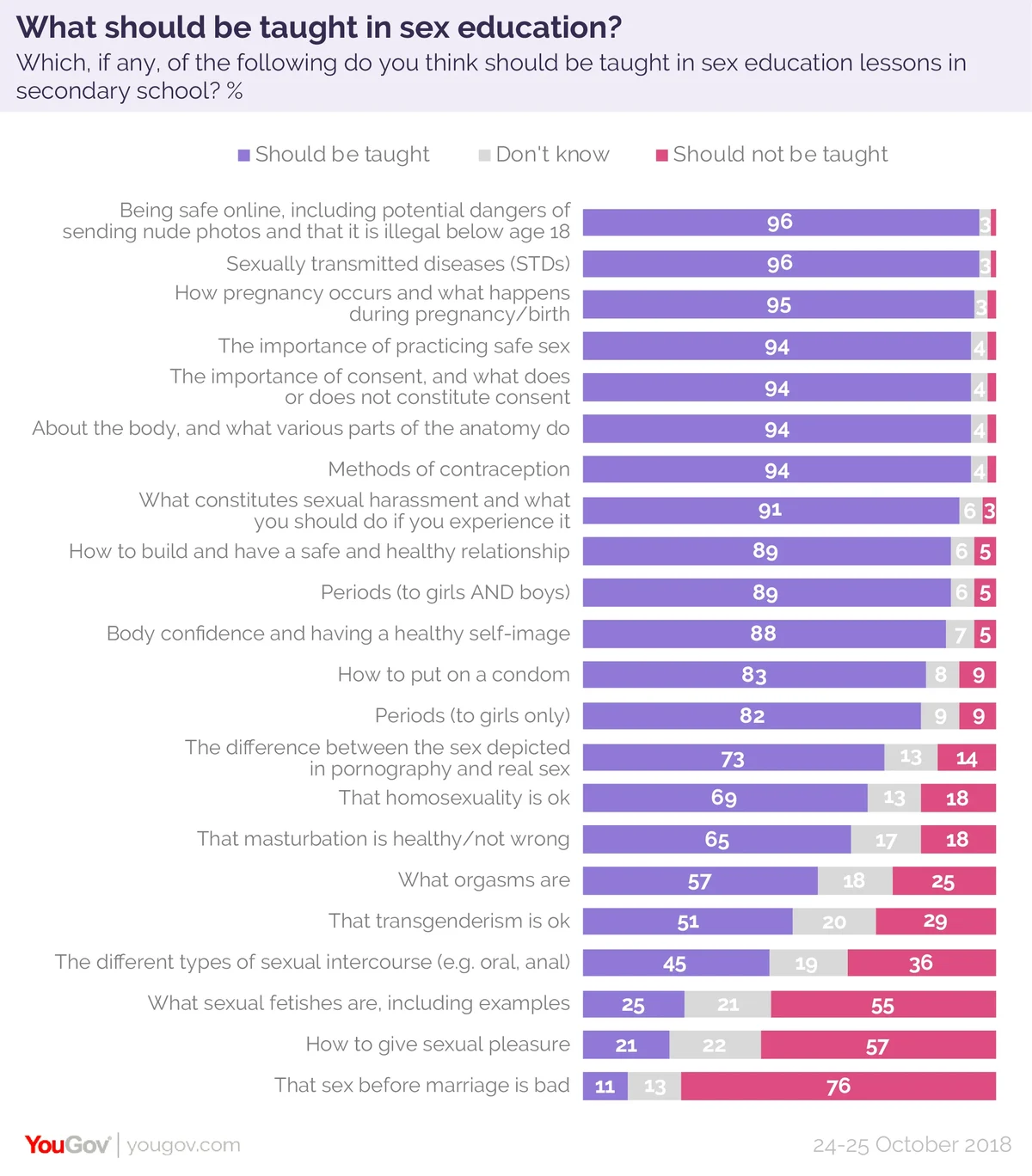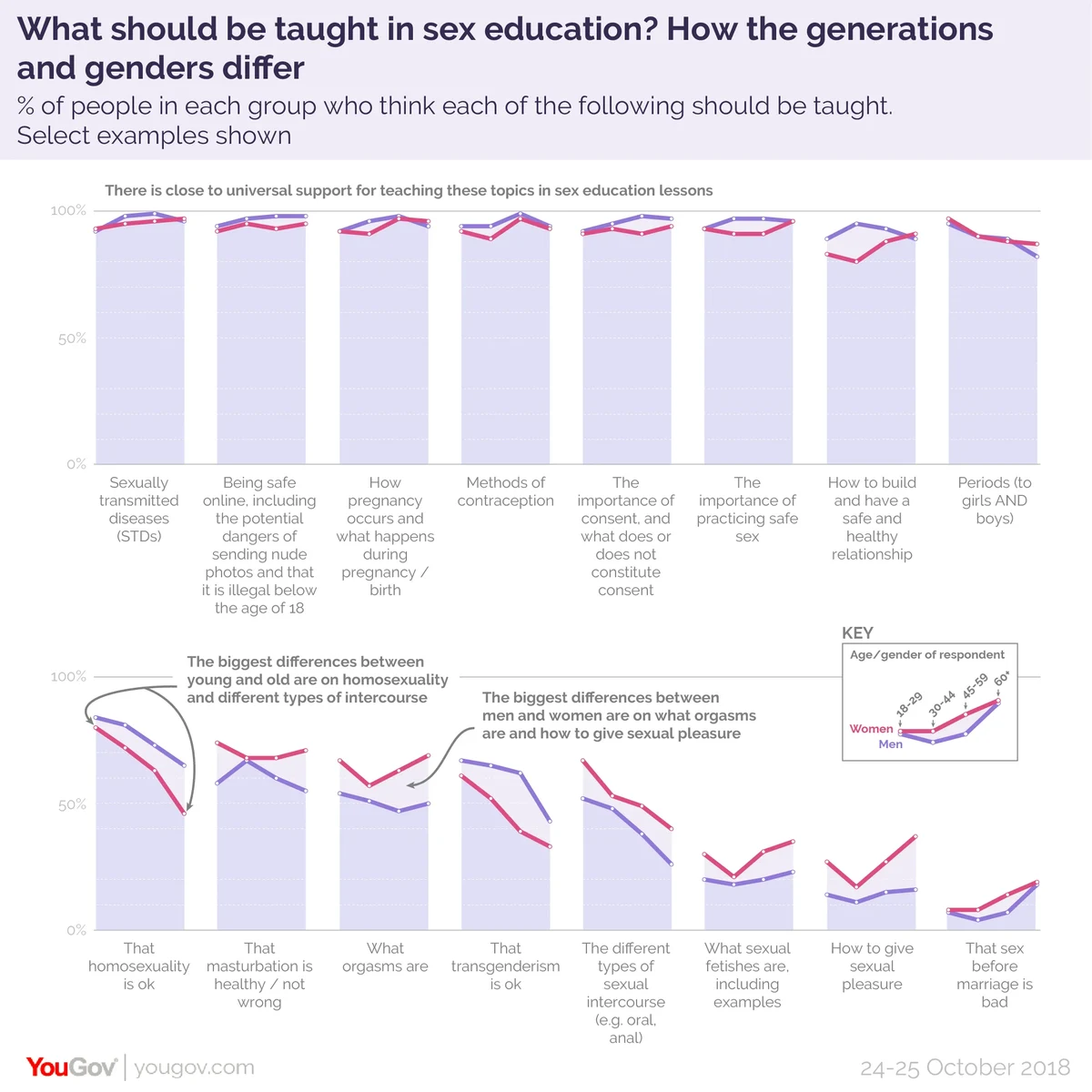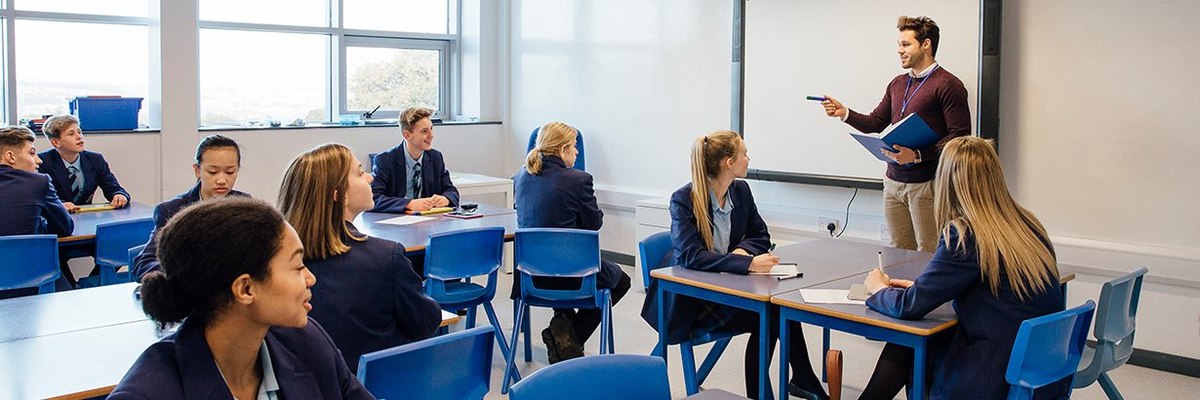YouGov discovers strong support for a progressive sex education curriculum
Labour MP Jess Phillips made headlines after calling for school sex education to cover orgasms. The majority of Britons back the Birmingham MP, according to a new YouGov study on what secondary schools should and should not teach in sex education classes.
More than half (57%) of people say that the classes should discuss what orgasms are, and men are more likely than women to hold this view (64% compared 50%).
Britons want young people to figure out how to achieve climax on their own, however; only 21% of people say that the lessons should cover exactly how to give sexual pleasure.
Most Britons support a progressive sex education curriculum – but one which stops short of mentioning fetishes
In December last year Justine Greening – then education secretary – outlined plans to expand the topics covered in sex education to include consent, healthy relationships and staying safe online.
Such a move is overwhelmingly popular with the British public. Fully 96% agree that sex education in secondary schools should teach children how to stay safe online, 94% agree that it should teach consent and 89% think it should explain how to build a safe and healthy relationship.

Of the 22 different proposals we put to the public, 18 were backed by half of people or more. One further – teaching the different types of sexual intercourse, such as oral and anal – was also supported by a plurality of 45%, versus the 36% who opposed the idea.
The remaining three were opposed by the majority. As mentioned above, only 21% think sex education should teach how to give sexual pleasure, and 57% oppose the idea. Similarly, only 25% think lesson time should be devoted to explaining what sexual fetishes are, including examples – 55% disagree with that proposal.
Britons also overwhelmingly oppose teaching the old fashioned view that sex outside of wedlock is wrong. Three quarters (76%) say that schools should not teach that, and only 11% believe they should.
How do the genders and generations differ?
Attitudes towards sex and relationships have transformed over the years, and this is reflected in some notable generational differences.
The biggest involves LGBT issues. Older men in particular are less likely to want schools to teach that homosexuality is acceptable – only 46% of those aged 60 and above believe they should, compared to 80% of 18 to 29 year old men. Among women, 84% of 18 to 29 year olds believe that homosexuality should be taught as acceptable, falling to 65% among the eldest age group.

Similarly, while 61% of men and 67% of women under-30 think sex education should teach that transgenderism is acceptable, these figures fall to 33% among men over 60 and 43% among women in the same age group.
There are also substantial differences of opinion on teaching the different types of sexual intercourse. Young men are noticeably more likely than young women to think the syllabus should include cover such ground (67% vs 52%), and opinion falls to 40% among the eldest men and 26% among the eldest women.
There is plenty on which men and women, old and young agree, however.
For much of the potential subject matter, from the more well-established teachings on STDs, pregnancy and contraception to more contemporary content like consent, relationships and staying safe online, there is near universal approval among men and women of all ages. If the government were to continue to press on with Justine Greening’s proposals to overhaul the sex education curriculum, they would find the British public very receptive.
Photo: Getty










